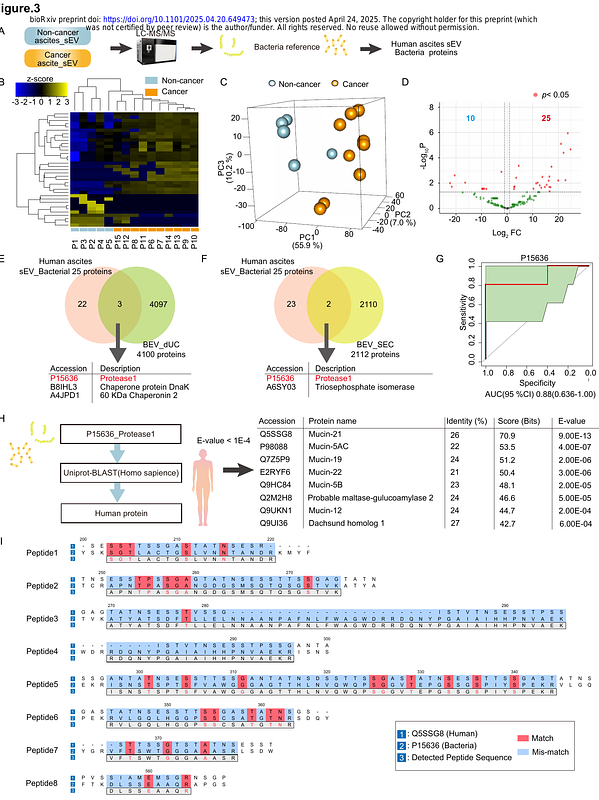Proteomic profiling of bacterial extracellular vesicles for exploring ovarian cancer biomarkers

Proteomic profiling of bacterial extracellular vesicles for exploring ovarian cancer biomarkers
Asano-Inami, E.; Yokoi, A.; Yoshida, K.; Taki, K.; Kitagawa, M.; Suzuki, K.; Uekusa, R.; Nagao, Y.; Yoshikawa, N.; Niimi, K.; Yamamoto, Y.; Kajiyama, H.
AbstractExtracellular vesicles (EVs) are present in body fluids and act as disease biomarkers. Emerging evidence has proven that EVs are released not only from mammalian cells but also from bacteria. Ovarian cancer has a dismal prognosis because of difficulties in early detection. This study aimed to identify bacterial EV (BEV) proteins associated with ovarian cancer. Fifteen patients with ovarian cancer or benign tumors were recruited, and EVs were isolated from the ascites. BEVs were recovered from seven in vitro-cultured strains of bacteria present in the vaginal microbiota, and LC-MS/MS analysis was performed. The detected peptide data were annotated to both human and bacterial references, and the human data showed that the profiles of cancer EVs were distinct from those of patients with benign tumors. As analyzed by bacterial proteins, P15636_Protease1 was found as the BEV-associated protein highly expressed in patients with cancer. To distinguish patients with cancer, the area under the curve was 0.88(95% CI, 0.64-1.00). In addition, homology analysis showed that P15636_Protease1 is a unique protein only detected in bacteria. In this study, ovarian cancer-specific bacterial proteins were identified on EVs, and BEVs in bodily fluids are promising in the discovery of disease biomarkers.